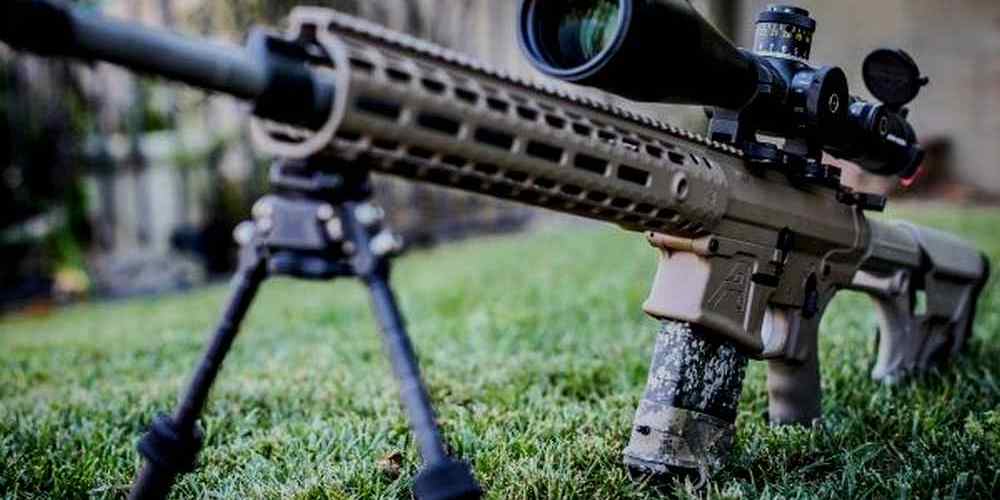Should You Use an AR-15 for Self-Defense?
In recent years, the debate surrounding the use of firearms for self-defense has intensified, with the AR-15 rifle at the center of much controversy. Advocates argue that the AR-15 is a powerful and effective tool for protecting oneself and loved ones in dangerous situations. However, opponents raise concerns about the rifle’s potential for misuse and its association with mass shootings. In this article, we will delve into the arguments on both sides of the issue to help you make an informed decision on whether or not to use an AR-15 for self-defense.
The Controversy Surrounding the AR-15
The AR-15, a semi-automatic rifle that is commonly used by civilians in the United States, has been the weapon of choice in several high-profile mass shootings, including the tragic events at Sandy Hook Elementary School and Marjory Stoneman Douglas High School. These incidents have sparked a heated debate over whether civilians should have access to such a powerful firearm.
Arguments in Favor of Using an AR-15 for Self-Defense
Proponents of using an AR-15 for self-defense point to its versatility and firepower as key advantages. The rifle is capable of firing multiple rounds quickly and accurately, making it a formidable weapon against intruders or attackers. Additionally, the AR-15’s modular design allows for customization to suit individual needs and preferences.
- The AR-15 is easy to handle and operate, making it suitable for individuals with varying levels of experience.
- Its long-range accuracy can be beneficial in situations where a threat is present at a distance.
- The presence of a high-capacity magazine allows for more rounds to be fired without the need for frequent reloading.
Concerns About Using an AR-15 for Self-Defense
On the other hand, critics argue that the AR-15’s firepower can lead to unintended consequences in a self-defense scenario. The rifle’s high velocity rounds have the potential to cause significant damage to both targets and surrounding objects, increasing the risk of collateral harm.
- Studies have shown that bullets from an AR-15 can travel through multiple walls, posing a risk to bystanders in adjacent rooms or buildings.
- The rifle’s rapid rate of fire may result in over-penetration, meaning that bullets could pass through a target without stopping.
- The perception of using an assault-style weapon like the AR-15 for self-defense may escalate a situation rather than de-escalate it.
Legal and Ethical Considerations
In addition to practical concerns, there are legal and ethical considerations to take into account when deciding whether to use an AR-15 for self-defense. Laws regarding firearm ownership and use vary by jurisdiction, so it is essential to understand your rights and responsibilities as a gun owner.
Legal Implications
Using deadly force in self-defense is generally permissible under the law if certain criteria are met, such as demonstrating a reasonable belief that your life or others’ lives are in imminent danger. However, the use of an AR-15 may draw scrutiny from law enforcement and prosecutors due to its association with mass shootings.
- Some states have specific regulations regarding the use of semi-automatic rifles like the AR-15 for self-defense purposes.
- It is crucial to familiarize yourself with local gun laws and seek legal advice if you have any doubts about your rights as a gun owner.
Ethical Considerations
From an ethical standpoint, using lethal force should be a last resort when all other options have been exhausted. It is essential to consider whether the level of force used in self-defense is proportionate to the threat faced and whether there are non-lethal alternatives available.
- Training in de-escalation techniques and conflict resolution can help prevent situations from escalating to the point where deadly force becomes necessary.
- Seeking guidance from firearms instructors or self-defense experts can provide valuable insights into how to handle potentially dangerous situations effectively.
Conclusion: Making an Informed Decision
Ultimately, whether or not to use an AR-15 for self-defense is a personal decision that should be based on careful consideration of all relevant factors. While the rifle offers undeniable firepower and effectiveness in certain scenarios, it also comes with risks and responsibilities that must be weighed carefully.
By understanding the arguments on both sides of the issue, educating yourself on legal requirements, and considering ethical implications, you can make an informed choice about whether using an AR-15 for self-defense aligns with your values and priorities. Remember that owning a firearm is a serious responsibility that requires ongoing training and diligence to ensure safety for yourself and those around you.




